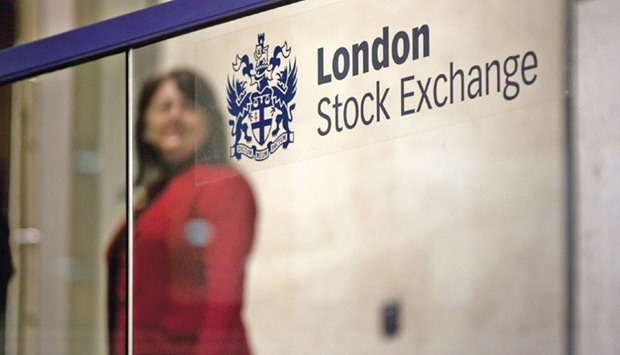European equities staged a timid rebound yesterday, winning moderate support after Beijing pumped cash into the money market to soothe worries over the slowing Chinese economy.
The main European markets had won about 1.0% in early deals, only to see the gains evaporate by midday, and then flip back and forth all afternoon.
In London, the FTSE 100 up 0.7% at 6,137 points; Paris CAC 40 rose 0.3% at 4,538 points and Frankfurt DAX 30 up 0.3% at 10,310 points yesterday.
Frankfurt managed a gain despite Volkswagen slumping 4% after US authorities turned up the heat on the German carmaker over pollution cheating by filing a lawsuit that could cost the company well over $20bn.
The euro meanwhile hit a one-month low at $1.0711 on news that eurozone inflation was unchanged at a weaker-than-expected 0.2% in December.
Adding to the picture, oil prices dipped yesterday as the crude supply glut overshadowed a diplomatic row between key producers Saudi Arabia and Iran.
Global stock markets had tanked Monday with Chinese equities automatically suspended after slumping on weak manufacturing data from the world’s second biggest economy.
Miners and oil firms were among the worst casualties from the fierce selloff because China is a top consumer of commodities.
“Investors appear non-too convinced by government efforts to stabilise stocks in China,” said Jasper Lawler, a market analyst at CMC Markets UK.
“In a choppy day of trading UK and European shares managed to edge out gains, retracing some of Monday’s sharp decline as the outlook for China’s economy and stock market remained uncertain,” he said.
State-controlled funds bought stocks yesterday, Bloomberg News reported, quoting people familiar with the matter, mirroring moves last year when the government waded into the market to halt a rout.
The People’s Bank of China, the central bank, also pumped 130bn yuan ($20bn) into the money market, according to a statement.
“Whilst European investors may have initially taken China’s market injection has a rebound-worthy bit of news, the fact is that ... this still didn’t help the Shanghai Composite avoid a wild, and negative, session of trading,” said Spreadex analyst Connor Campbell.
Lawler said the intervention may have prevented another day of sharp losses, but that: “It’s an unstable situation when local investors are selling to a government buyer, it can only last so long.”
Analyst James Hughes at trading firm GKFX said: “There are still worries about the stability of the Chinese economy and the ability of the rest of the global economy to come to terms with the new China, one that no longer looks to double-digit GDP growth as the norm.
“Markets have not coped well with this up to now,” he told AFP.
Asian markets mostly fell yesterday, with Shanghai down 0.3% after a topsy-turvy session that witnessed opening losses of three%.
In echoes of the summer’s turbulence that saw trillions wiped off valuations, most bourses in Asia tumbled in the first few minutes of trade on Tuesday before bouncing in and out of positive territory throughout the day.
The selling on Monday was fuelled by more downbeat data on Chinese factory activity, the latest evidence showing the Asian powerhouse economy struggling with its lowest annual growth rates in 25 years.

A visitor passes a sign inside the London Stock Exchange. The FTSE 100 closed up 0.7% at 6,137 points yesterday.
